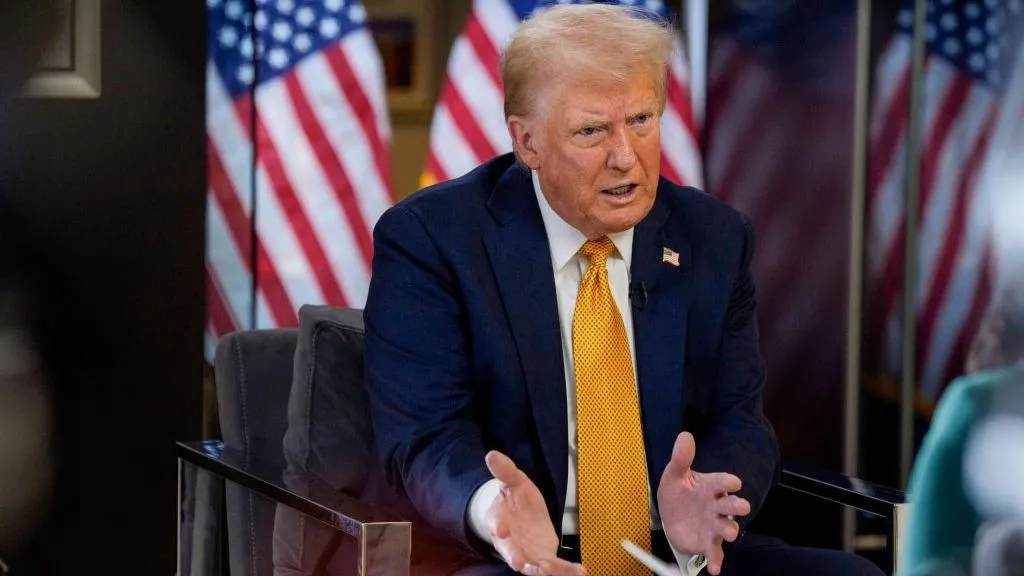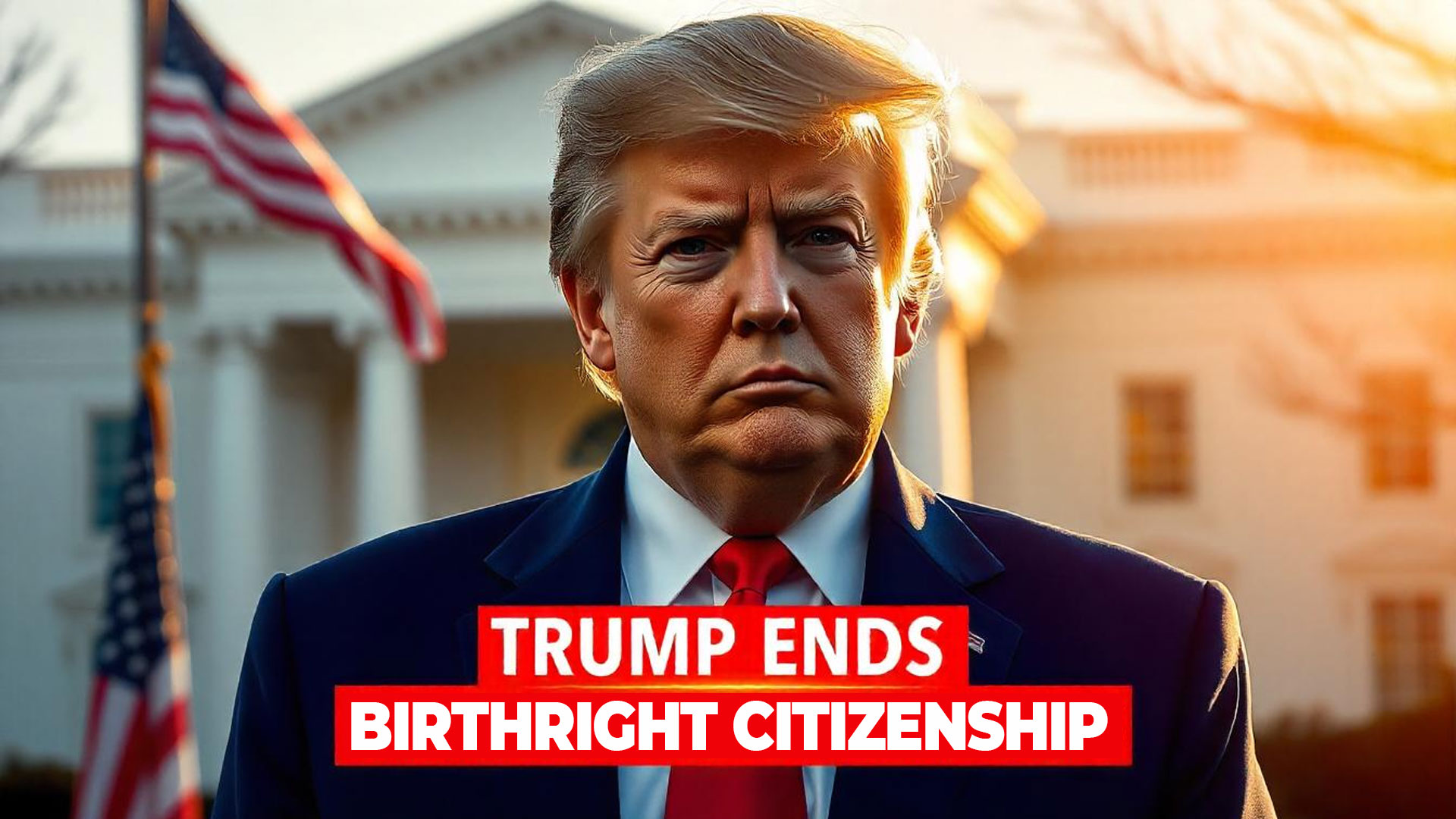On January 20, 2025, Donald J. Trump was sworn in as the 47th President of the United States. Just days into his presidency, he signed a controversial executive order aimed at ending birthright citizenship for children born to undocumented immigrants in the U.S. The order, titled “Protecting the Meaning and Value of American Citizenship,” is set to take effect on February 19, 2025 and has already sparked intense legal and political battles.
TRUMP Launches Airstrikes Against ISIS in Somalia!
Understanding Birthright Citizenship
Birthright citizenship is enshrined in the 14th Amendment, ratified in 1868, which states:
“All persons born or naturalized in the United States, and subject to the jurisdiction thereof, are citizens of the United States and of the State wherein they reside.”
This amendment was originally designed to grant citizenship to formerly enslaved people after the Civil War. Over time, it has applied to millions of children born in the U.S., including those with undocumented parents. The Supreme Court has consistently upheld birthright citizenship, making it a cornerstone of U.S. immigration policy.
However, some argue that it has unintended consequences, such as encouraging illegal immigration and allowing non-citizens to have children who automatically gain citizenship—a practice critics refer to as “birth tourism” or “anchor babies.”
What Does Trump’s Executive Order Mean?
For over 150 years, birthright citizenship in the U.S. has been protected under the 14th Amendment of the Constitution
Trump’s order challenges this long-standing interpretation by stating that children of undocumented immigrants should not automatically receive U.S. citizenship. The move aligns with his long-held stance on immigration reform but faces immediate and widespread opposition.
Legal and Political Battles Unfold
Shortly after the executive order was issued, 22 states filed lawsuits against the Trump administration, arguing that the president lacks the constitutional authority to change citizenship laws through executive action. Legal experts and lawmakers across party lines have questioned whether such an order can override the constitutional amendment.
On January 23, 2025, a federal judge in Seattle temporarily blocked the executive order, calling it “blatantly unconstitutional.” The ruling prevents the order from taking effect while the lawsuits proceed through the courts. However, the case is expected to reach the Supreme Court, which will determine the fate of Trump’s attempt to alter the U.S. citizenship system.

President Donald Trump, the current President of the United States. Photo: Getty Images
Trump’s Push to End Birthright Citizenship
Donald Trump has repeatedly stated that he wants to end birthright citizenship, calling it “one of the biggest loopholes in the world.” During his presidency, he proposed signing an executive order to redefine citizenship eligibility, arguing that children of undocumented immigrants should not automatically become U.S. citizens.
Most legal experts agree that such a change would require a constitutional amendment or a Supreme Court ruling, as an executive order alone would likely be challenged in court. Nonetheless, Trump’s stance has fueled debates about the future of U.S. immigration policy.
What Would Happen If Birthright Citizenship Ended?
Ending birthright citizenship would have far-reaching consequences, affecting millions of people and reshaping the legal and social landscape of the United States. Here are some potential outcomes:
1. Legal Battles and Constitutional Challenges
Any attempt to change birthright citizenship would face immediate lawsuits and a constitutional battle in the Supreme Court. The 14th Amendment’s language is clear, and previous rulings have upheld birthright citizenship. If a legal challenge reached the Supreme Court, it could set a historic precedent affecting immigration laws for generations.
2. Millions of People Left in Legal Limbo
Children born in the U.S. to undocumented parents could suddenly find themselves stateless—not recognized as citizens by the U.S. or their parents’ home countries. This could create a massive bureaucratic nightmare, with millions of people left without legal status, unable to obtain passports, social security numbers, or other necessary documentation.
3. Increased Deportations and Family Separations
If birthright citizenship is revoked for children of non-citizens, many families could face deportation or be forced into legal uncertainty. Immigration enforcement could ramp up, leading to increased family separations and a humanitarian crisis, similar to past policies that have sparked global outrage.
4. Economic and Workforce Impact
Many industries, especially those reliant on immigrant labor—such as agriculture, construction, and service sectors—could suffer labor shortages. U.S.-born children of undocumented workers often contribute significantly to the economy as part of the workforce. If they lose citizenship, it could disrupt economic stability and reduce tax revenue from millions of individuals.
5. Political and Social Backlash
Eliminating birthright citizenship would spark intense political and social unrest. Civil rights groups, immigrant advocacy organizations, and even businesses could push back against such a move. Protests, lawsuits, and international condemnation could follow, damaging America’s global image as a nation of immigrants.
6. A Shift Toward a More Restrictive Immigration System
If the U.S. ends birthright citizenship, it would join a handful of countries that do not automatically grant citizenship by birth. Nations like Germany and Japan have more restrictive policies requiring parents to be legal residents or citizens. However, such systems are often accompanied by complex naturalization processes that could take years for children to gain legal status.
Could This Actually Happen?
While Trump’s proposal has gained traction among immigration hardliners, the legal and political hurdles are enormous. The Supreme Court, even with a conservative majority, may be reluctant to reinterpret the 14th Amendment without a constitutional amendment, which would require two-thirds approval from Congress and ratification by three-fourths of U.S. states.
Additionally, public opinion remains divided. While some Americans support tighter immigration controls, many believe that birthright citizenship is a fundamental right that reflects America’s identity as a land of opportunity.
Final Thoughts: What’s Next for America?
As Trump and his supporters push for immigration reforms, birthright citizenship remains one of the most controversial topics in American politics. Whether or not the policy changes, the debate itself signals a broader conversation about national identity, immigration, and the future of U.S. citizenship laws.
Will Trump’s vision become reality, or will the 14th Amendment remain untouched? Only time will tell.
What do you think? Should birthright citizenship be abolished, or is it a crucial part of America’s democratic values? Let us know your thoughts in the comments below!






Very interesting subject, regards for putting up. “It is much easier to try one’s hand at many things than to concentrate one’s powers on one thing.” by Quintilian.
Thank you! I’m glad you found the subject interesting. And that’s a great quote by Quintilian—so true that focusing on one thing often requires more effort than spreading your attention. Appreciate your thoughts, and if you have any more insights to share, feel free to drop them anytime! 😊
Thanks for sharing. I read many of your blog posts, cool, your blog is very good.
Thanks so much! Glad you enjoy the content. Stay tuned for more updates, and feel free to share your thoughts!
Your article helped me a lot, is there any more related content? Thanks!
Glad you found it helpful! You can check out more related content on my website. Let me know if you have any questions!
Thanks for sharing. I read many of your blog posts, cool, your blog is very good.
Thank you so much! 😊 I really appreciate your support. Glad you enjoy the blog—stay tuned for more great content!
Thanks for sharing. I read many of your blog posts, cool, your blog is very good.